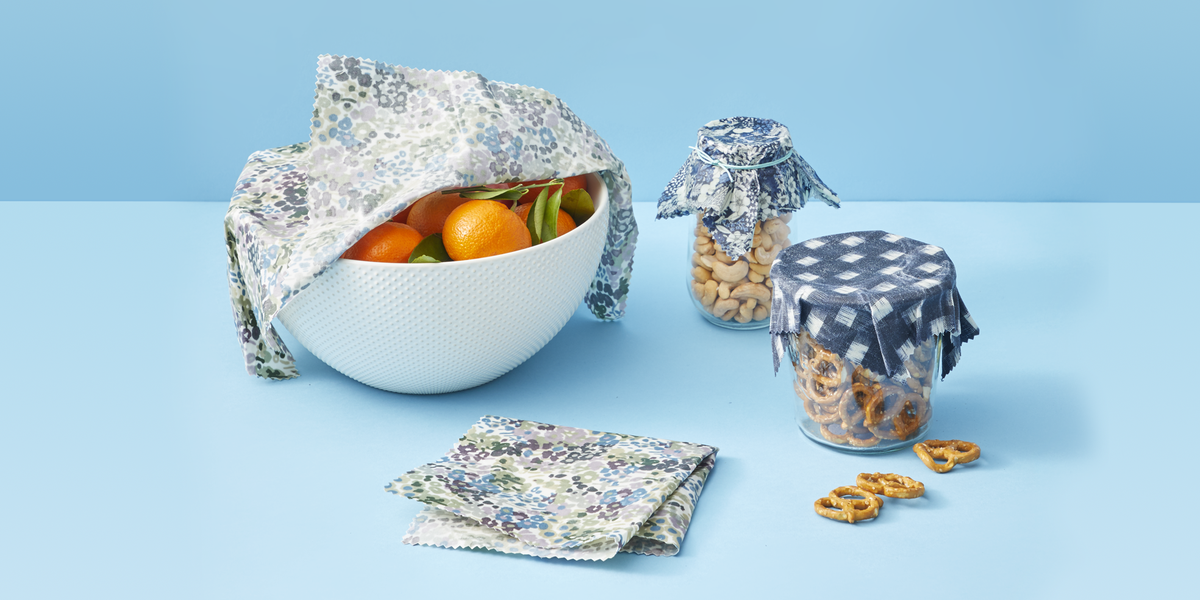
FAQ About Beeswax Wraps

How do beeswax wraps compare to plastic wrap?
Beeswax wraps are a sustainable alternative to plastic wrap, with several key differences in terms of their properties and impact on the environment:
Sustainability: Beeswax wraps are made from natural materials, such as organic cotton and beeswax, and are reusable, washable, and compostable. In contrast, plastic wrap is made from non-renewable petroleum-based materials and is typically used once before being thrown away, contributing to plastic pollution and environmental damage.
Versatility: Beeswax wraps can be used to wrap a variety of food items, including fruits, vegetables, sandwiches, and cheese, and can be molded around containers to create a seal. Plastic wrap is more limited in its versatility and can't be used for hot foods or in the freezer.
Hygiene: Beeswax wraps can be hygienic for storing food, as long as they are washed regularly and used properly. Plastic wrap can also be hygienic, but it is often difficult to clean and can trap moisture and bacteria, leading to mold or other issues.
Eco-friendliness: Beeswax wraps are biodegradable and compostable, meaning they break down naturally over time without releasing harmful chemicals or polluting the environment. Plastic wrap, on the other hand, can take hundreds of years to decompose and can release toxic chemicals into the soil and water.
Cost: Beeswax wraps can be more expensive than plastic wrap initially, but they are reusable and can last for several months with proper care. In contrast, plastic wrap is inexpensive but needs to be used and disposed of frequently, leading to long-term costs and environmental damage.
